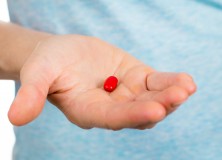Children are our future, and we want to give them the best possible shot to be all they can be. However, you’d be surprised to find out that a good number of our young people are actually iron deficient! Based on small recent studies, it’s estimated that almost 12-64% of them are iron deficient!
Is your child at risk?
You may be wondering why so many kids are suffering from iron deficiency. Commonly, for children between the ages of 9 months and 3 years and also during puberty, this can be explained by their growing bodies. Literally, they’re growing, and rapid growth creates a need for increased blood volume (and iron). If children are not absorbing enough iron from their diet, the body may not be able to keep up with the new increased demands. There are other reasons that children at various ages can develop iron deficiency – take a look at all of the child risk groups here.
Iron deficiency not only impacts children in Canada but also children abroad. By the numbers, iron deficiency anemia affects almost 750 million children worldwide. That’s a lot of children who are not getting enough iron, especially since iron deficiency is preventable!
So what happens if a child is iron deficient?
Well, iron deficiency can not only cause your child to feel tired or lethargic and reduce their exercise tolerance, but various studies have shown that untreated iron deficiency can have a significant impact on a child’s cognitive function. A child with iron deficiency may experience changes in their behavior including issues concentrating, learning disabilities, and/or reduced emotional responsiveness.
There are ways to prevent and treat iron deficiency
Add more iron-rich foods (like iron-fortified cereals, poultry, fish, etc…) into your child’s diet. Even if you have a picky eater, there are ways to get around this! Check out my 10 clever ways to get more iron into your child’s diet without them even knowing!
If diet alone is not enough, you could also introduce a pediatric formulated iron supplement (liquids or powders). Learn about the different pediatric iron supplements and talk to your doctor/pharmacist for more information on choosing the right one for your child.
There are effective options for treating iron deficiency, but the key is to stay aware and know how to recognize the symptoms to ensure you can take the best next steps to prevent iron deficiency in your children.

















